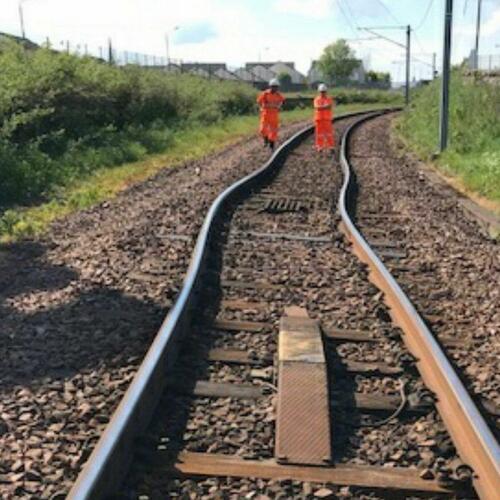“US Not Prepared”: Extreme Heat Event Risks Damaging US’ Rail Network With Buckling Tracks
A large swath of the US, including at least two dozen states, are under heat advisories or warnings to end the week as a heat wave pushes east. There are concerns extreme heat could risk straining rail networks.
Earlier this month, Amtrak service between New York and Philadelphia encountered delays due to “heat-related” speed restrictions. Those restrictions could return as temperatures in the Northeast are expected to print near triple-digit territory through the weekend.
Brutal temperatures could buckle tracks and result in passenger and freight rail delays, similar to what’s happening in London as Network Rail told passengers earlier this week not to travel by train.
Paul Chinowsky, a professor of civil engineering at the University of Colorado Boulder, told Bloomberg that “the US is not prepared” for extreme heat and damage it could inflict on rails.
“While the rail system is incrementally being improved, there is significant work to do, and what is being done is not being done fast enough,” Chinowsky said.
The weight and speed of passenger or freight trains are a deadly combination for railroads baking in the sweltering heat. The United States’ railways are mostly made of steel, and with higher temperatures, steel expands and softens. That’s especially true in the Northeast and Southwest, where tracks were not built to withstand or adjust to triple-digit temperatures given the more mild climates, said Chinowsky.
“When it gets significantly hotter, like it is now, it gets soft, and you run a rail car over that, you get what are called sun kinks,” he said. “It’s essentially a deformation [and] the rails just buckle.”
“You can even think of it as a person standing on sand,” Chinowsky said. “When you run on sand, or you put something really heavy on sand, it pushes that sand away from you; the same thing is happening to the rail.”
In June, a train in Concord, California, derailed due to a curve that emerged in the track during an extreme heat event.
A massive heat dome lingering in the US could be troubling for the freight industry for the next five days. The latest figures show that 28% of US freight moves by rail. And if heat-related restrictions were implemented, it would cause even more bottlenecks for supply chains.
Francesco Lanza Di Scalea, a professor of structural engineering at the University of California San Diego, calls for a ‘blood pressure-like monitor’ monitoring system on rail networks to track rail conditions in extreme weather events.
Tyler Durden
Thu, 07/21/2022 – 11:05

